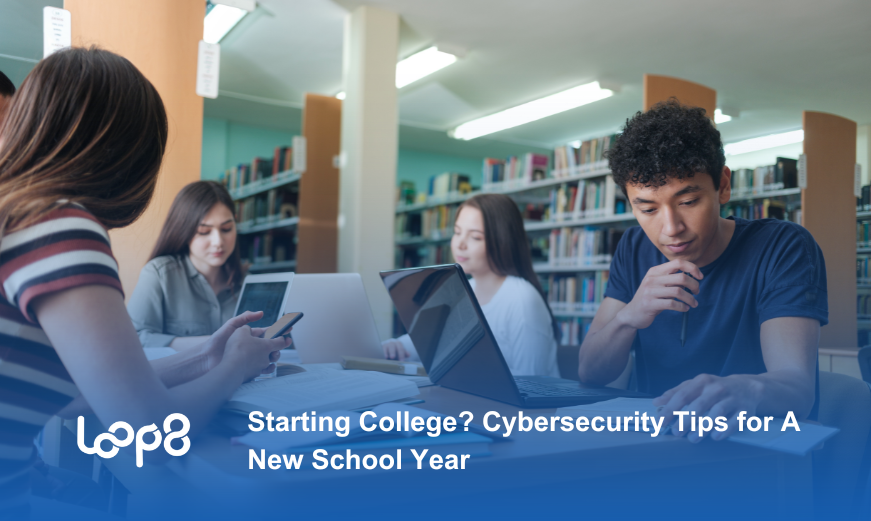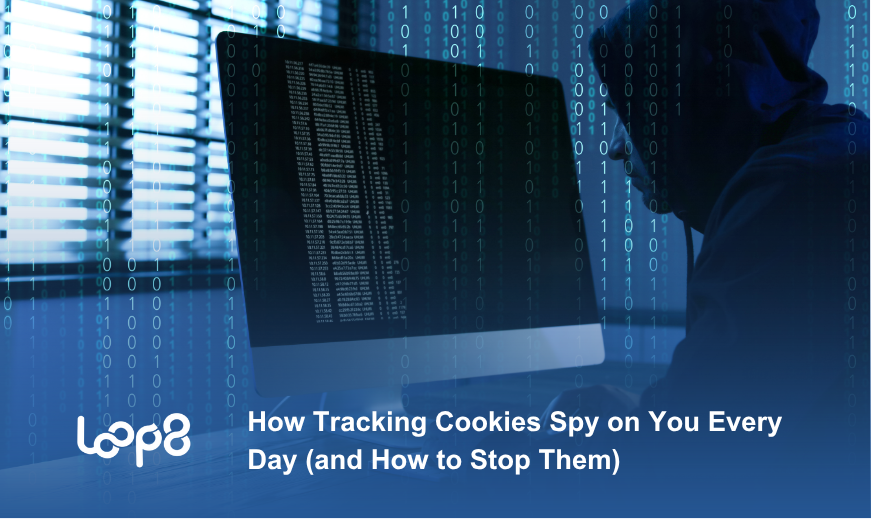Starting College? Cybersecurity Tips for A New School Year


Navigating the college landscape can be scary. From juggling classes, roommates, and late night study sessions, there is one thing many students tend to overlook, the online world. In a world that is more connected (and riskier) than ever before, college students aren’t aware of the risks of potential phishing, logging onto public wifi, and social media vulnerabilities. Here are some tips to help students stay secure online this year.
Avoid Falling for Phishing Scams
Phishing scams are a major threat for students—over 90% of cyber attacks start with phishing emails (Verizon Data Breach Report). Attackers often target students with fake messages about assignments, campus updates, or job opportunities, creating a false sense of urgency.
As students try to navigate through college life, they might not double check before opening links. Urgent-looking emails from a “professor” or “campus office” can make anyone click quickly without thinking.
To stay safe, always verify senders and links especially if messages prompt urgent action like identity confirmation. If something feels off, it probably is.
Be Cautious with Using Public Wifi
Public Wi-Fi is convenient for studying in libraries or grabbing coffee with friends, but it’s also risky. Students tend to be hyper focused on finishing assignments or studying for their next big exams and don’t really think twice about the digital vulnerabilities that come with accessing a public Wi-Fi.
Public Wi-Fi on campus can be super convenient, but it isn’t always safe. Hackers sometimes create fake networks with names that look almost identical to the school’s Wi-Fi, tricking students into connecting. Once you’re on, they can snoop on your activity or even steal your personal data.
Using a VPN adds a layer of protection by keeping your connection private and harder to intercept. Still, always double-check the exact network name before you log on.
Limit Social Media Exposure
Social media is a fun way to stay connected, but oversharing can put your privacy at risk. College students’ oversharing of information on social media can increase their vulnerability to cybersecurity threats, including account breaches and identity theft. Many college students use their personal details or a combination of them like their pets name or favorite sports team as their passwords, but that cute post about Teddy’s birthday could be the key hackers need to access your entire life.
The good news is, you don’t have to stop sharing—you just have to share smart. Post photos after events instead of during, adjust your privacy settings so only friends can see your updates, and avoid tagging your exact location in real time. That way, you can still capture the moments that matter without giving away details that could be misused.
Enable Multi-Factor Authentication
These days, passwords alone aren’t enough to keep your accounts secure. Many students reuse the same password or use weak passwords across their school and personal accounts without realizing how often passwords are leaked or stolen in data breaches. In 2023, over 4,000 data breaches exposed more than 15 billion records worldwide (Identity Theft Resource Center), once a hacker gets access, they can compromise far more than you’d expect.
The best defense is adding an extra layer of protection through multi-factor authentication (MFA) or biometrics. Setting up 2 factor authentication is one way to add an extra layer of protection and tools like Loop8 use Face ID or fingerprints to confirm it’s really you, making it much harder for attackers to break in. With biometric login, you get quick, stress-free access to your accounts—something every student needs during busy semesters filled with exams, deadlines, and campus life.
Make Digital Security Effortless with Loop8
While these habits are essential, Loop8 makes online safety simple so students can focus on studies and campus life. Features include:
- Biometric Login: Reduce the risk of stolen passwords
- Clean-Slate Browsing: Keep your browsing private
- Zero-Knowledge Architecture: Your credentials are encrypted on your device, never stored on Loop8 servers
By combining smart habits with Loop8, students can enjoy campus life without worrying about hackers lurking in the digital world.
Stay in the loop.
Subscribe to our blog to get insights sent directly to your inbox.




